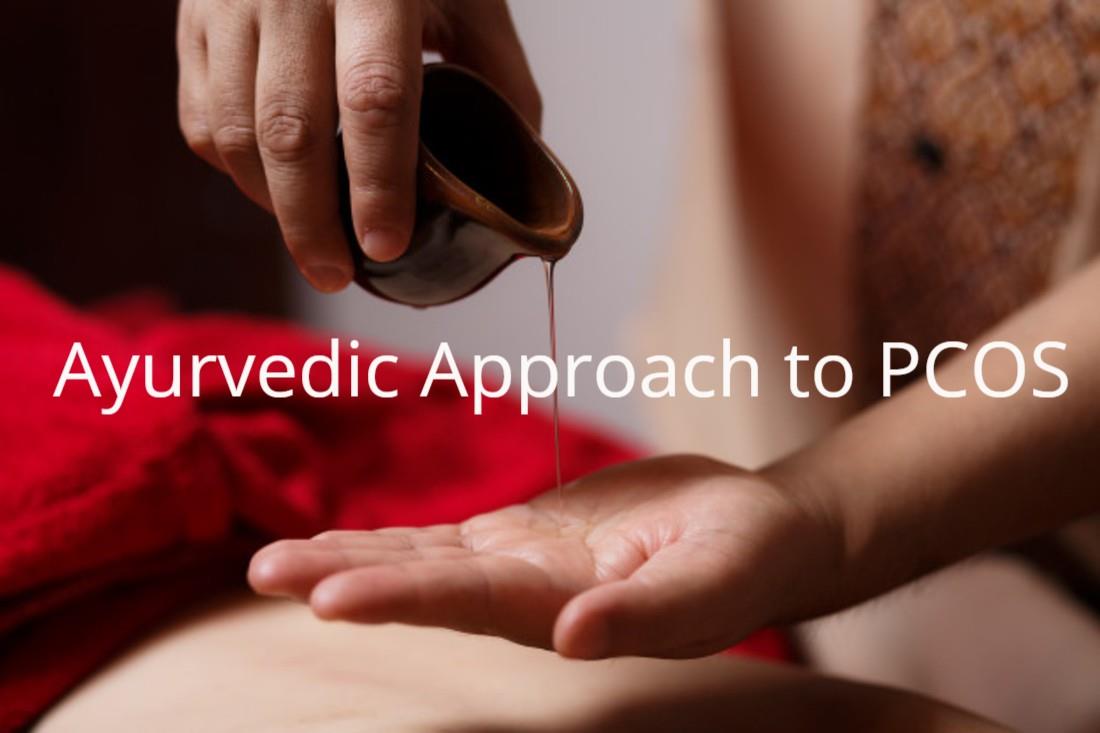An Ayurvedic Approach to Cure Polycystic Ovarian Syndrome (PCOS)

PCOS is a leading cause for infertility, obesity, menstrual irregularity, and many other gynaecological disorders in women across the world. Ayurveda is one of the best-referred treatment methodologies for PCOS. This article discusses the effectiveness of Ayurveda in curing PCOS and other infertility problem.
PCOS is the shortened name for Polycystic Ovary Syndrome, a medical condition that affects the reproductive system in women. However, PCOS often leads to severe side-effects that can disturb a woman's life. In women suffering from PCOS, usually high levels of the male hormone, testosterone is usually seen while the levels of Luteinizing hormone (LH) and Follicle-stimulating hormone (FSH) are too low. This is one of the major causes of infertility in patients with PCOS. Ayurveda is one of the most effective treatment methodologies to cure Polycystic Ovarian Syndrome (PCOS). Ayurvedic Treatment for PCOS
Ayurveda is an ancient medicine system that works on the premise that all health conditions are due to a fault or imbalance of the doshas. So, every disease is linked to the imbalance in doshas, where a dosha is broadly defined as the constitution of an individual's body. Individuals have their own body type, and specific diseases plague specific doshas.
In Ayurveda, doctors identify symptoms and correlate them with the dosha, before starting treatment. The treatment focuses on aligning of the doshas – it serves as the foundation for eliminating the disease. Ayurvedic treatment of PCOS is based on detoxification therapies. The therapies are known to cleanse the body of impurities leading to a desirable balance of doshas and hormones.
In Ayurvedic treatment for PCOS Various techniques, involving herbal medicines, are applied during the detoxification process. They help with the removal of deeply embedded toxins, the main issue behind PCOS. Once the toxins are flushed out of the system, the reproductive system slowly begins to heal itself, causing it to strengthen and function normally. The treatment helps in rectifying the hormone anomaly, thereby regularising the menstrual cycle and restoring ovulation.
The herbal concoctions also help with inflammation and cysts, a major issue that PCOS patients, which actually hinders ovulation. Further, the medication helps with weight issues and in reducing insulin levels.
The herbs most commonly used in the treatment of PCOS include – Ayurvedic Tips and Remedies to Manage PCOS
As part of the healing process, Ayurveda prescribes lifestyle changes. Our everyday routines have an impact on our health. Certain habits can have a detrimental effect on our health, while other habits restores the body's balance and help in its healing and rejuvenation.
Ayurvedic treatment for infertility involves lifestyle changes. For the treatment to be successful women must follow certain practices, such as –PCOS symptoms in a woman
PCOS has tell-tale signs that make diagnosis possible even before a thorough medical investigation is carried out. Though that is not to say that a clinical diagnosis is not required. If you or anyone you know exhibits one or more of the following the likelihood of them suffering from PCOS is high. The following symptoms are among the most common problems associated with the disease. If you experience any of the symptoms mentioned below, you are advised to see a doctor, as you may be suffering from PCOS and in need of proper guidance for its management.
Dietary and Lifestyle Changes to Cure PCOS
There is no substitute for a nutritious diet. The body needs wholesome, natural foods, which are nutritionally potent. Consuming the right foods accelerates healing, improves vigour, leaving the body healthy and energised. To combat PCOS, Ayurveda recommends a change in dietary habits.
Losing weight is the first step towards fighting PCOS. Being overweight creates insulin resistance, which aggravates the condition. Weight loss is recommended, under the guidance of a fitness expert. Patients should not indulge in extreme dieting for losing weight. Achieving optimum body weight should be the goal, as it lowers insulin resistance and reduces the level of the male hormone, androgen.
Further, eating the right foods, help control insulin levels. Certain foods are known to raise the insulin levels, and cutting them out from the diet can prove to be beneficial. Eating a healthy, balanced diet is the key to healing. The ayurvedic diet consists of seasonal vegetables and fruits. They are packed with nutrients – vitamins, minerals, antioxidants and fibre, and prevent the accumulation of toxins.
A healthy diet for PCOS must be something like this –
Most of the Ayurvedic experts administer healthy and nutritious diet as part of the Ayurvedic treatment for PolyCystic Ovarian Syndrome.
A good number of Ayurveda hospitals in Kerala provides exclusive Ayurvedic treatment for gynaecological disorders considering the body type, nature of the disease and several other factors. Since Ayurveda follows a holistic approach, usually there won't be any side effects.
